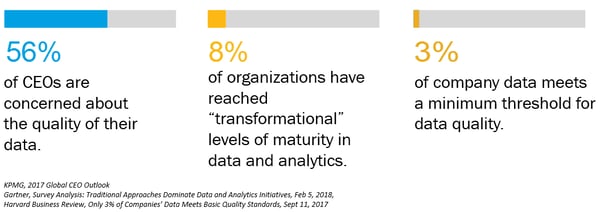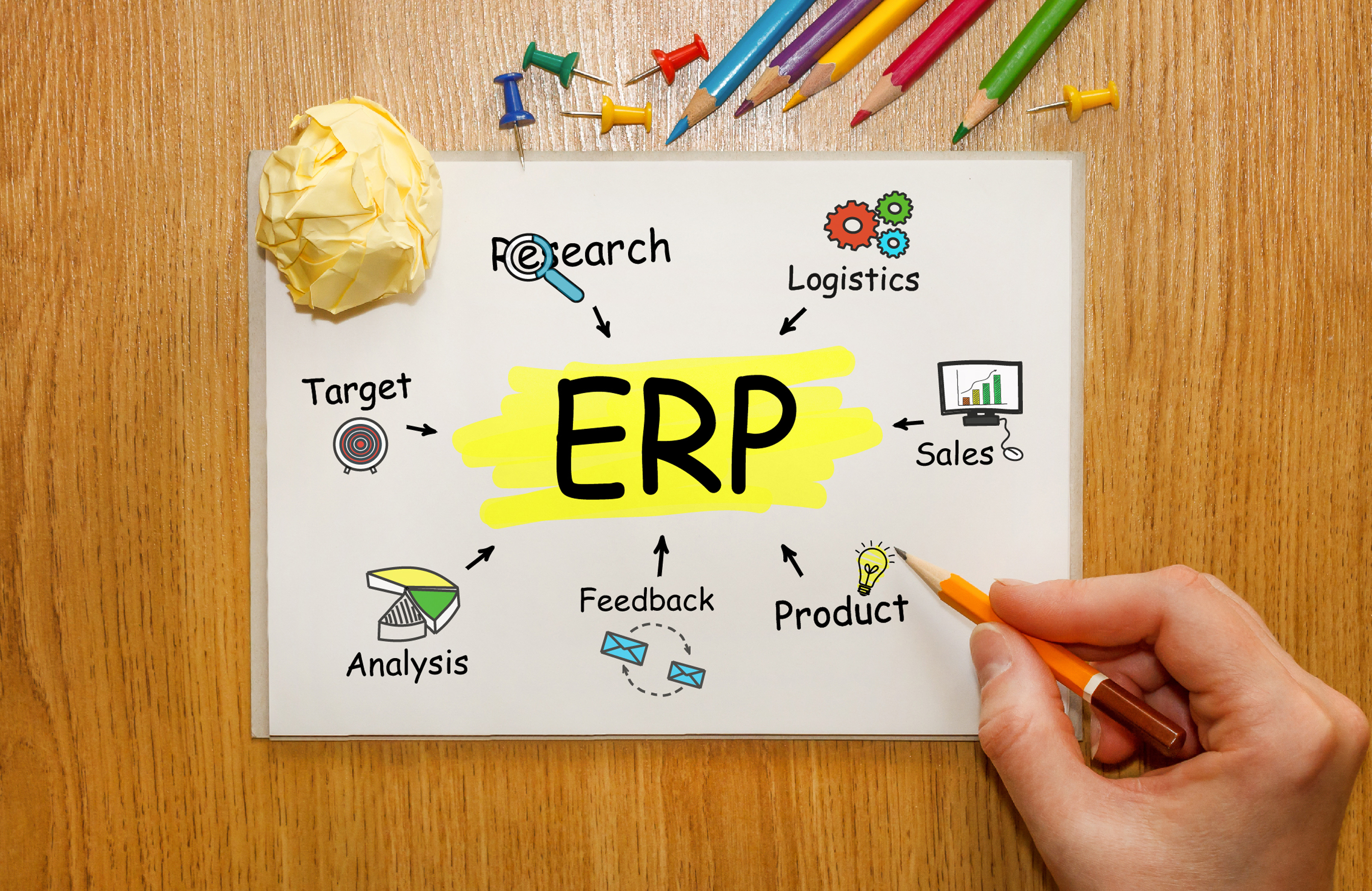Enterprise Resource Planning (ERP) systems are at the heart of business. Across the entire organizational value chain, ERPs are rapidly consuming, aggregating and disseminating data. From the shop floor to the to the top floor, ERPs have made us smarter, more efficient, more accurate and ultimately, more profitable.
Most large, asset intensive companies have had ERPs in place for some time now. And yet, capturing, aggregating and distilling accurate data is still is a top pain point. Recent studies by KPMG and Gartner have found that 56% of CEOs are concerned about the quality of their data and that only 3% of company data meets a minimum threshold for data quality.
And now, even though some ERP systems are becoming finely tuned, well-oiled machines, organizations are facing the pressure to jump on the IIoT bandwagon (the first ‘I’ being Industrial), and fast. Connected assets, sensors on top of sensors all sound amazing, but, what do we do with all of this new data? Are our systems ready for it? Will our ERPs be able to capture and make sense of the data and actually turn it into actionable insights?

The data demands of IIoT are not small!
In a 2018 study by IDC; McKinsey Global Institute found that the manufacturing sector stored more than 1,912 petabytes of data than they did in the previous year. PETRABYTES! The reason…an ever-increasing reliance on ERP systems and the explosive growth of IoT data.
Many ERP systems are still struggling to integrate IoT data well.
A recent survey by IFS found that 84% of industrial companies face a disconnect between data from connected devices and strategic decision making and operations, limiting the digital transformation potential of IoT. The CIO of the future is an executive that utilizes technology to proactively respond to the evolving needs and opportunities facing the business. They are challenging their IT leaders to marry their ERP environments with IoT. But they can’t do it alone. There must be a robust partnership between business and ERP providers to ensure adequacy in integration.
The top challenge…connectivity.
There is still a major disconnect between what organizations have, and what they want to accomplish. Larger organizations in the IFS study reported their ERP system was an impediment to digital transformation, yet the larger organizations were also found to be the most likely to invest in sensoring and IoT initiatives involving over 90% of their equipment. So essentially, businesses are investing in IoT hardware when their backend software is viewed as being an impediment that already has an existing set of monumental data challenges.
ERP systems are attempting to rapidly evolve to meet the growing demand for IoT integration. But, are they there yet? For decades, the focus has been on integration and transparency across finance, procurement and supply chain - Core ERP. However, in the past ten years, the focus has begun to shift to operations, asset management and field service management. Companies realized the dollars and cents impact of smart operations and asset management, and in turn, the ERP industry responded. The challenge now is to extend IoT data from the shop floor to the c-suite and every line of management and leadership in-between to make smart, predictive and nimble decisions.
The IFS study found that only 34% of companies were successful in leveraging data from their manufacturing execution systems and that only 19% can correlate that data with ERP systems. To truly realize the value of the digital transformation and the resulting business growth, companies must be able to consume and leverage their IoT data. To do this, integration and out-of-the-box solutions are key. As we push into 2019 and beyond, expect to see much more robust embedded solutions within core ERP offerings supporting the integration with IoT devices and sensors.
So, the answer to the age-old question of “are we there yet?” will remain (for the time being), “soon.”




